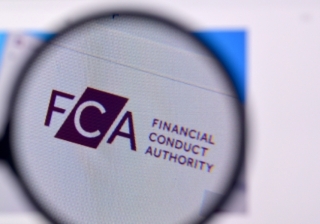Make sure the new energy rules don’t make your customers look like April fools
It’s just over a month to go now until new energy efficiency rules come into force which could result in hundreds of thousands of landlords being hit with a fine of up to £5,000 if they fail to meet them.

"There’s a good excuse for brokers to get in touch with existing and previous customers to make sure they’re prepared and encourage them to check their property meets the minimum standards."
According to a recent article in The Telegraph, switching service Switchcraft has looked at more than 18 million energy performance certificates and found that more than a quarter of a million landlords are yet to carry out vital improvement works needed to bring their properties up to the required standards.
In case you didn’t know, from 1st April landlords have to ensure that existing tenants are living in properties that meet minimum energy efficiency standards (MEES). This is the latest phase of the MEES roll-out and is the first time the standards have been extended to existing tenants, having been previously introduced for new lets and tenancy renewals back in 2018.
From April, properties with an energy performance certificate rating of F or G – the lowest possible ratings – will be considered unrentable. Any landlord found not to be complying with the new rules could face a fine, with the amount dependant on the type of infringement and the length of non-compliance, as well as being named and shamed by appearing in the local authority’s PRS Exemptions Register.
It’s all part of a wider drive to improve energy efficiency standards and help the UK to achieve its carbon reduction targets.
It started in 2007 with the introduction of the Energy Performance Certificate (EPC) rating system. Now, whenever a property in the UK is constructed, sold or rented out, it has to have a certificate to show how much energy it uses and how it rates in terms of energy efficiency based on factors such as insulation, heating and hot water systems. Properties are given a rating from A (most efficient) to G (least efficient) and all rented buildings must have an up-to-date EPC which must be made available free of charge to any prospective tenants at the earliest opportunity.
Then, in April 2018, the MEES for residential and commercially let properties in England and Wales were introduced. The MEES have been rolled out in phases – new lets and tenancy renewals to begin with, then existing tenancies from this April, then all tenanted commercial buildings from April 2023.
There are some exemptions, listed buildings and holiday lets that are rented out for less than four months a year for example, but the majority of landlords now need an EPC for their property.
Don’t get me wrong. Anything which improves the conditions for tenants living in rented accommodation, not to mention helps the environment, is laudable. However, with the 1st April deadline fast approaching, I’m concerned there appears to be so many landlords who are still unaware of the changes.
It means there’s a good excuse for brokers to get in touch with existing and previous customers to make sure they’re prepared and encourage them to check their property meets the minimum standards.
And with costs for improvement works capped at £3,500 for landlords funding the work themselves, it’s an opportunity to find out if they need help in securing finance to make any required upgrades, such as fitting double glazing or installing a new boiler.
This is why brokers are so valuable to their customers – not just as someone who can make them aware of potential problems, but as someone who can offer them solutions to those problems.
Breaking news
Direct to your inbox:
More
stories
you'll love:
This week's biggest stories:
This week's biggest stories:
Santander
Santander launches 98% LTV ‘My First Mortgage’

First-time Buyer
Improved affordability sparks 20% rise in first-time buyers: Nationwide

Inflation
Further rate cuts dampened as inflation rebounds to 3.4%
Mortgage Rates
Two Big Six lenders increase mortgage rates as swaps rise
Bank Of England
Bank of England holds interest rates at 3.75% in narrow 5-4 vote

FCA
Tribunal upholds FCA decision to fine bank and two employees over plan to harm Qatari economy
